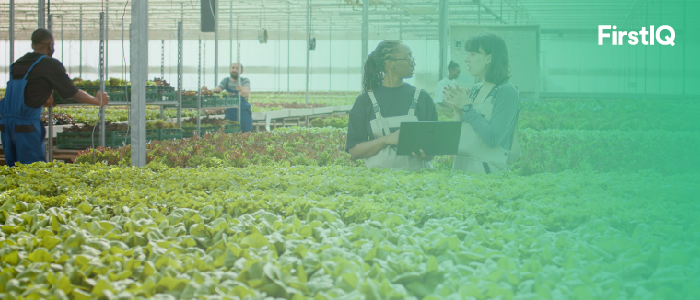BASF’s Efficon, Prexio Active, and Plinazolin Set to Surprise Indian Agricultural Industry
India's farms in 2025 are seeing their pest control methods revolutionized by global advancements, at long last gaining a foothold on Indigenous soil. Foremost among these are BASF's Efficon, the best-selling Plinazolin technology, and eagerly awaited Prexio Active, all of which promise to both support pest resistance management and ecological stewardship across India's vast fields.
With growing concerns regarding pest resistance, farm profitability, and the agroecosystem balance of agroecosystems, such novel solutions are being increasingly adopted by Indian agronomists, farming cooperatives, and regulating players.
Solving India's Pest Issues with Precision
At the forefront is Efficon, BASF's cutting-edge solution for sucking pest control in the form of whiteflies and aphids that infest Indian cotton, soybean, and vegetable crops. Rolled out previously this year at the Coopavel Rural Show 2025 in Brazil, Efficon is now making waves in Indian markets due to its:
-
High selectivity targeting only pests and leaving beneficial insects like pollinators and natural predators unaffected.
- Compatibility with IPM (Integrated Pest Management), which is among India's Ministry of Agriculture's core agenda items in its sustainable crop protection strategy.
- Lowered environmental impact, as India's tighter regulation of pesticides and growing pressure from environmentally conscious consumers mount.
In this way, Efficon becomes not merely a pesticide, but an environmental policy for smart farming to gain more acceptance in states such as Maharashtra, Andhra Pradesh, and Punjab, where whitefly attacks are regular and ruinous.
Plinazolin: The Indian Solution to Insecticide Resistance
Also in the news in India is the launch of Plinazolin, a next-generation active that controls a broad spectrum of chewing and piercing insects. It’s worth to Indian agriculture is in:
- A novel mode of action needed to beat pest resistance built up against conventional chemistries.
- Long-lasting residual activity and systemic protection, ideally suited to Indian crops with extended growing periods.
- Relevance in the high-value horticulture of vegetables and fruits grown in the states of Himachal Pradesh, Karnataka, and Tamil Nadu.
As vegetable and fruit export grows in India, especially to the Middle East and Southeast Asia, commodities like Plinazolin offer yield assurance and market adaptability, and they will be the future norm in India's crop protection program.
Prexio Active: The Game-Changer for India's Rice Bowl
Among the most highly anticipated launches is Prexio Active, a molecule that is specifically formulated for rice hopper management. With India ranking among the world's top rice producers, this new tool becomes essential for:
- Managing pest recurrence in monoculture paddy fields of West Bengal, Uttar Pradesh, and Tamil Nadu.
- Completing the resistance management problem, with no cross-resistance reported.
- Improving the overall well-being of the crop, as Prexio demonstrates attractive physiological effects on rice crops.
2025 India registration and introduction of Prexio Active is timely, aligning with governmental initiatives to achieve stable rice yield amid climate stress and pest recrudescence.
Market Trends and Future Outlook
India's insecticide market will experience a boom driven by:
- Increased need for innovative, eco-efficient products across different agro-climatic zones.
- More R&D and product registrations by companies to address regulatory change and farmer-level field demands.
- Larger exports of cereals, vegetables, and fruits, which require residue-compliant pest control products.
Market opportunity for newer-generation insecticides like Efficon, Plinazolin, and Prexio Active is high, considering Indian agriculture is moving from volume to value. Recent trade and agri-input analysis suggests that the market for insecticides in India is likely to exceed ₹30,000 crore in FY2026, fuelled by crop diversification, export-oriented cultivation, and climate-resilient agronomy.
A New Era for Indian Pest Management
Briefly put, 2025 is the insecticide moment for India. The arrival of selective, resistance-breaking, and environmentally friendly insecticide technologies has unleashed a wave of hope among the country's farmers and policymakers.
With BASF and the other trailblazers pushing the limits of what is possible in insect management, India is gearing itself not only to adopt but to lead the revolution in sustainable crop protection, one molecule at a time.





